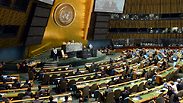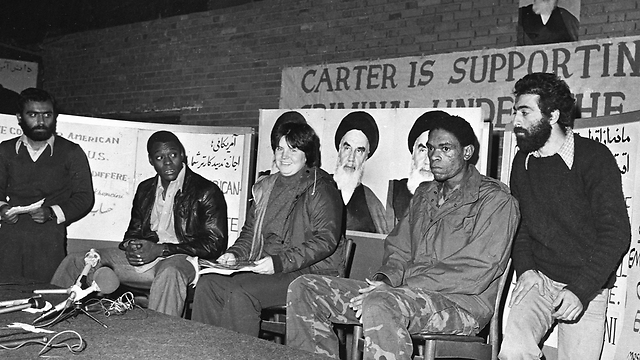
New Iranian ambassador to UN bogged down by past ties
Allegations of involvement in 1979 Tehran hostage crisis delay appointment of new Iranian ambassador to UN.
Abutalebi was one of the Iranian militiamen which stormed the US embassy in Tehran and held the staff hostage for over 400 days. Iran has submitted a diplomatic visa request to the State Department for the 56-year-old statesman, who has previously served as Iran's ambassador to Belgium and Italy.
The United States is responsible for issuing visas to officials of the United Nations, the compound of which is designated as an international territory, even if the representative is from a hostile nation.
The request for Abutalebi's visa was submitted to Washington several months ago, yet the Americans are not rushing to issue the document, according to a Washington Post report.
Deputy State Department spokeswoman Marie Harf did not directly commend on Abutalebi's case during the weekly press conference, saying only that "anyone is allowed to submit a request for a visa." A spokesman for Iran's UN mission declined to comment.
Diplomats from countries that do not have formal relations with the United States – like Iran, North Korea, and Cuba – are not allowed beyond a 40 kilometers radius from New York City, where the UN is headquartered.
Related stories:
- Embassy hostages react to West's deal with Iran
- Rouhani in 1986: West too soft on Khomeini
- Iran's Revolutionary Guards committed to 'Death to America'
The controversy surrounding the appointment of Abutalebi may push elected officials on Capitol Hill and beyond – who are gearing up for the Congressional midterm elections – to refuse the visa request, as no Iranian involved in the embassy crisis was allowed entry into the US, according to a Bloomberg report.
However, Gary Sick, who served on the National Security Council during the hostage crisis, said there is historical precedent for issuing visa documents to significantly more controversial officials.
“All kinds of leaders from Cuba to Africa who could be accused of horrible crimes and opposing US policies have received visas,” Sick told Bloomberg. “There is no way to know why some people get the visa and some don’t.”
Abutalebi denies taking part in the occupation of the embassy, an event which marked the outbreak of the Islamic revolution in Iran and the rise of Ayatalloh Ruhollah Khomeini.
“On a few other occasions, when they needed to translate something in relation with their contacts with other countries, I translated their material into English or French,” Abutalebi told Iranian news website Khabaronline.
Yet Abutlabei's picture graces a website of the Iranian militia which initiated the occupation of the embassy.
Mohammad Hashemi, one of the students who led the takeover of the embassy, told Bloomberg that after the hostage crisis was resolved, Abutalebi was sent to Algiers – a hotbed of Islamist movements – by the Revolutionary Guards.
The occupation of the US Embassy in Tehran began in November 1979 when young Iranians, mostly students, stormed the embassy, taking 52 hostages. The Americans were held for 444 days, with the students demanding the US returned the deposed Shah of Iran to the new Islamic authorities.











